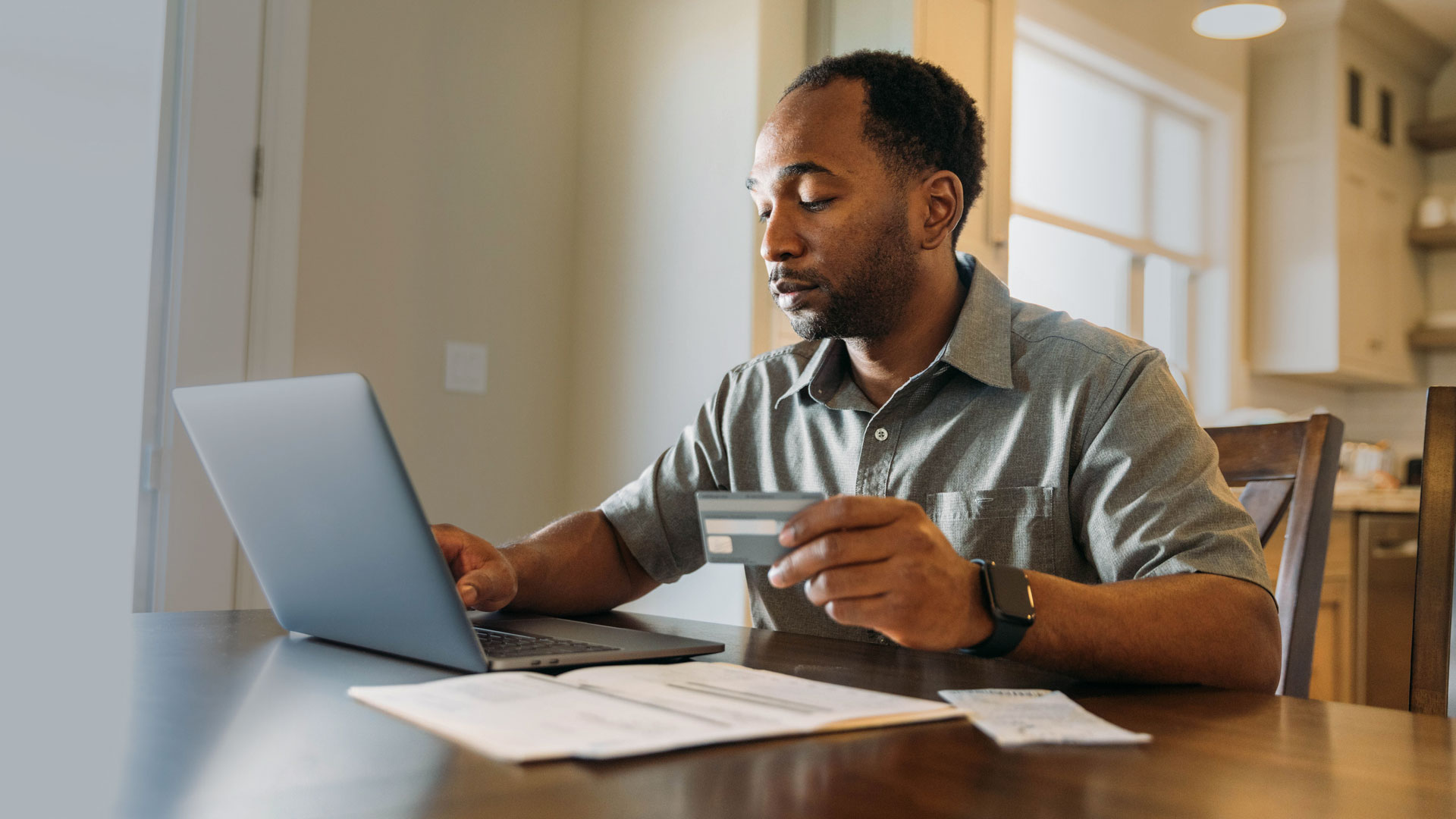Many people misunderstand credit cards and debt in general. Debt should be a helping hand, and taking on debt is not necessarliy a bad financial move. For instance, very few of us would be able to buy a house or a car without debt.
However, what you consider the right level of debt will be different from what your neighbour or work colleague considers a reasonable level. How we go about achieving our debt goals will differ from one person to the other.
The best way to see your debt is as a tool you’re able to manage. Credit cards, for example, can represent convenience and security. Pay off the full amount every month, and a credit card makes shopping an interest-free, cashless experience, whether in-store or online. And if you do keep a healthy balance available on your credit limit, it can also help you afford unforeseen emergencies.
Rethink your credit card as a tool
If you are easily tempted into instant gratification, you may not be using your credit card tool correctly. It’s easy to fall into the trap of buying stuff you don’t really need ‘on plastic’, just because you can.
And once you get to a point where you can’t pay off the full amount every month, but only the minimum payment required, you start paying interest upon interest for as long as you can’t settle the full balance. And the more credit cards you have, the more times you can repeat this mistake.
If you find yourself in this position, you need a reset. You need to pay off some credit card debt, which will get rid of the interest weighing down your finances. You may want to cancel some of your cards once they are paid off – especially those with the highest interest rates.
It’s not a good idea to cancel all your credit cards, though, as we explain here. The trick, going forward, is to use your remaining cards responsibly, as described above.
Paying off your cards 1 by 1 is possible, even if you can only afford to keep paying the minimum amount due – as long as you have the discipline to stop adding any more debt to the card until you’ve paid off the full balance.
Here are 3 different strategies you can try when tackling credit card debt. In all 3 approaches, you start by paying the minimum amount due.
1. Snowball strategy
We might not get much snow in South Africa, but we still know that a snowball grows in size as it rolls down a hill, picking up more snow. You can apply the same idea to your debt repayment strategy.
How this works: you pick the card with the smallest balance remaining, and focus on paying it off. Once you’ve managed that, you move on to your card with the next-smallest balance.
But now, you add the amount you were paying off on the smaller balance to your monthly repayments. This means that you’ll be able to pay off the second card quicker than you would have, because the amount you’re paying every month is larger.
Your credit cards can be a source of convenience and peace of mind, rather than a nagging, ever-growing debt
You can now continue with this process of settling the balance on each and adding the amount you have been paying to the next card on your list.
The major benefit of this approach is that you’re continually encouraged to stick to your strategy. Firstly, you can see your total credit card debt getting smaller, and secondly, every time you clear the balance on a card, your repayments can get bigger and reduce your debt even faster.
2. Avalanche strategy
A different approach is to target the card with the highest interest rate. Stop using it for purchases, and focus on clearing the balance, even if you can only afford the minimum instalment.
The avalanche approach helps reduce the total interest you end up paying, because you get rid of the most expensive debts first. And like you do with the snowball approach, once you’ve paid off one card completely, you add the amount you had been paying on it to your monthly payments on the card with the next-highest interest rate.
The major benefit of this approach is that you minimise the amount of interest you pay in total.
3. Lasso strategy
The last approach that you might want to consider is all about simplifying and consolidating what you owe on your credit cards. You’re lassoing your cards, and corralling them in one place. This can have a major psychological benefit: it reduces the monthly stress of having to manage multiple payments.
When done correctly, it could even reduce the total amount you pay back. This is possible if you’re able to get a lower interest rate than those you are currently paying on your other credit cards. When you open a new credit card account with Nedbank, you can get a preferential rate for a limited period if you transfer the balance from another bank’s credit card.
Of course, how much you can transfer from other cards depends on the credit limit on your new Nedbank card. But whatever amount you can transfer, the preferential interest rate adds up to savings, no matter which strategy you’re using to pay off your other cards.
By reducing your credit card debt, and only hanging on to 1 or 2 cards with the lowest interest rates, you can rein in unnecessary spending and improve your finances overall. From there on, if you use this financial tool wisely, your credit cards can be a source of convenience and peace of mind, rather than a nagging, ever-growing debt.





